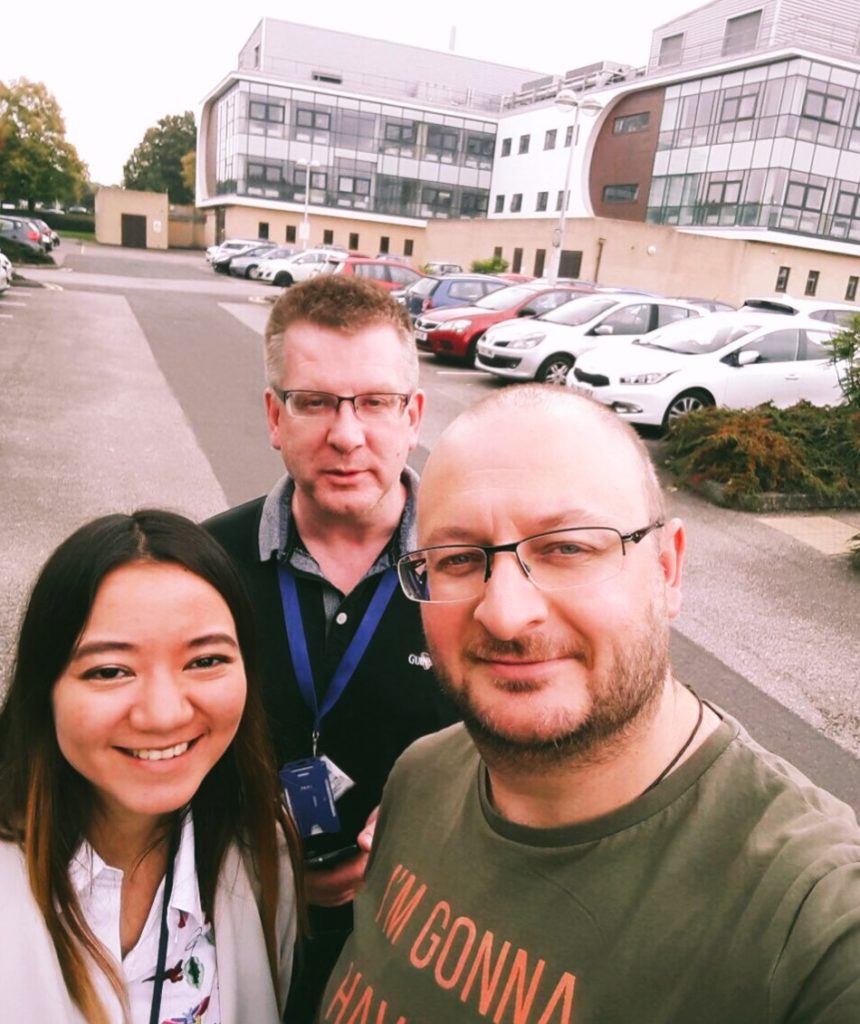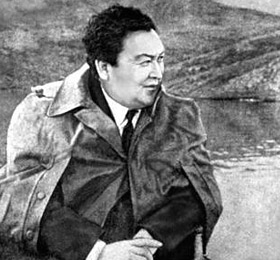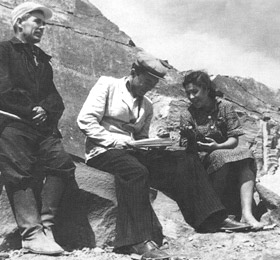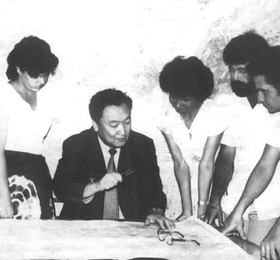Guliaym Sagandykova
Specialization: Natural Sciences in Chemistry. Internship: The Open University, UK.
 Guliaym is 24, she is from Semipalatinsk; she graduated from al-Farabi Kazakh National University and now studies at the PhD program in the University of Nicolaus Copernicus, Poland. In the winter of 2017, she won a grant for a three-month internship in one of the best universities in Britain and in the summer moved to Milton Keynes, where the campus of the Open University is located.
Guliaym is 24, she is from Semipalatinsk; she graduated from al-Farabi Kazakh National University and now studies at the PhD program in the University of Nicolaus Copernicus, Poland. In the winter of 2017, she won a grant for a three-month internship in one of the best universities in Britain and in the summer moved to Milton Keynes, where the campus of the Open University is located.
What impressed you at the Yessenov Foundation’s grant competition?
I was impressed by the second stage of the competition. Our applications were sent to British professors for evaluation, and they decided the fate of the winners. At the time of applying for the competition, I was preparing to defend my Master’s Thesis and enter the Doctoral program. I planned this back in school time, but before the actual admission, I was tormented by doubts, whether I had the required level of education for this. My victory in the 2d stage of the competition helped me to believe in myself, to successfully pass the internship and to start the Doctoral program in November of that same year.
Tell us, how was your internship going?
I worked with Professor Nicholas Turner at the high-sensitivity mass spectrometry laboratory, and also with Professor Geraint Morgan. At the beginning, I was trained to work on the newest equipment — gas chromatographs and mass spectrometers; I studied the automatic system of sample analysis. We had to develop a methodology for the analysis of estrogen — steroid female hormones — quantities in waste water. Excess estrogen in the environment can cause irreversible changes for both humans and animals, for example, it can cause diseases such as cancer, or diseases of endocrine and reproductive systems.
Were there any problems during conducting the experiments?
Yes, deviations of the obtained results reached almost 50%. The problem could lie in anything: from the device itself to laboratory utensils. We put a lot of extra experiments. It was extremely difficult to find out the cause of the problems, because it took a lot of time to plan the experiment. After a series of experiments, we finally managed to reduce the deviations to the permissible limits (less than 10 %). There were also problems with the equipment itself, for example with its software.
What did you achieve by the end of the internship?
I learned how to work with new equipment. Secondly, although the volume of the obtained results turned out to be less than we had planned, we have finally developed a methodology for the analysis of hormones on a gas chromatograph, and it can be used. Thirdly, I was very pleased to acquaint Professor Morgan with one of my academic supervisors at the KazNU — Professor Bulat Kenesov — and thus to contribute to the establishment of cooperation between our universities. It is possible that Professor Morgan will be invited to Kazakhstan for a series of lectures on his space research. Incidentally, he recommended to me a pharmaceutical company, which is engaged in the free provision of work equipment to universities. For KazNU this is very important, because on average we have only 3 units of equipment for 15 student researchers. I keep in touch with the English professors.
What next, Guliaym?
After obtaining PhD — in 2020 — I plan to continue my academic career by applying for a post-doc position as a researcher at a UK university. Well, if we talk about more distant plans, I plan to become an independent scientist and assemble a scientific group. The universities of Cambridge and Oxford, Stephen Hawking’s study, the Museum of the History of Science at Oxford, the science center to study the impact of climate on the evolution of modern species — all the places I visited during the internship inspired me to do so. British system of work in the laboratory and safety rules also impressed me, therefore I will try to implement them in Kazakhstan.
27.04.18, Stories
Seen by: 554




